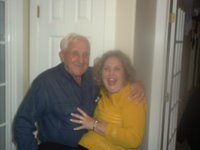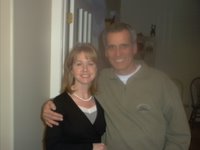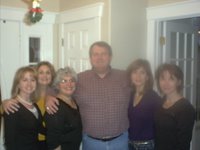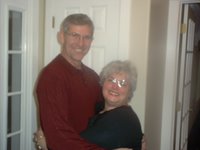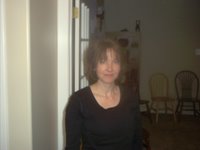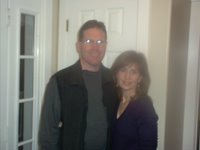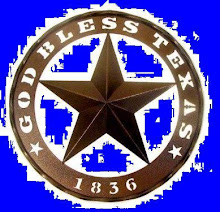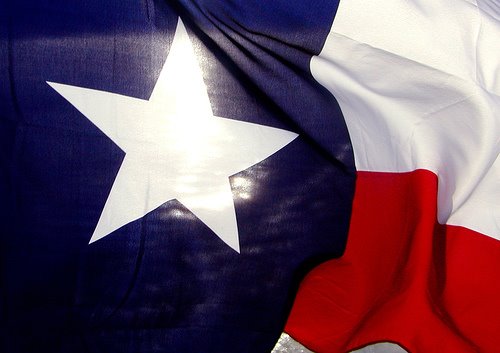The 362nd Aviation Detachment (Provisional), 165 Aviation Battalion, 1st Aviation Brigade was the air traffic control facility for the airfield at the Tay Ninh Base Camp. The unit had about 40 soldiers assigned and most were present for duty. We provided control tower and ground controlled approach radar (GCA) services for the airfield. Our Commander was a Lieutenant Colonel (LTC) and was designated as Airfield Commander. The re-arm point operations also fell under the authority of Airfield Operations, although the re-arm personnel belonged to another detachment or unit. Our owning the re-arm point would work to my advantage sometime later in my assignment to the 362nd.
I was assigned to the GCA section and my bunk was in the GCA hooch. We had eight people in our hooch. I can’t remember all the names, but a couple stand out: Larry Findley, Keith Grayson, Larry Neil. My GCA Chief was Sigfredo (Fred) Sandoval and the Tower Chief was Jerry Metzger. We also had a radar maintenance man named Mike Burdell. Fred, Larry Neil, and I became very close friends. Fred and I worked together at Fort Rucker for several years after Vietnam. Larry got out of the Army and lives in Lubbock. I spoke with Larry a few years ago when Brett lived in Lubbock, but circumstances at the time kept us from getting together. Brett moved to Killeen and I have not been back to Lubbock since.
Our hooch had four bunks on either side. I was in the second bunk on the right side. One of the controllers was assigned to give me the fifty cent tour of the unit. The first thing I was told about was the rocket and mortar attack of a few nights earlier. I was shown shrapnel holes in lockers, above doors, an in the GCA van. The attack occurred after had someone called into the control tower and asked for the 8 digit grid coordinates for the control tower. The young controller, without thinking, transmitted the coordinates over the air. Realizing what he had done, he notified the Air Field Commander. The Air Field Commander notified Base Camp security who told them to batten down the hatches. That night rockets “walked” up and down the airfield and the detachment area. Amazingly, there were no direct hits on any structure, and no one was injured.
When I got settled into the hooch, I noticed everyone had an M-14 weapon, generally hanging on the wall above or next to their bunk. When I processed into supply I was told that I would get my weapon, but it didn’t happen. Then we found out that all the weapons were being turned in and we were going to be issued M-16s. It would be several weeks before that happened, but when it did happen, we had to unpack them and assemble them. Who would have thought that the main weapon of the United States Armed Forces comes with “some assembly required”? Now, I had been trained and qualified “Expert” on the M-14, and the only experience I had had on the M-16 was a brief class during POR at Fort Lewis. Now I had to put one together like my life depended on it, which it did at one time. After we put them together we had to leave them in the arms room! Here we were in the middle of Vietnam and our weapons were in an arms room. Later I would come to appreciate that some of the people in our unit didn’t have immediate access to a weapon and ammo!
The first night in Tay Ninh is one that I will never forget … no matter how hard I try! I had been given a tour of the area including the affects of the recent attack. My hooch mates told me that if we took incoming to fall on to the floor or roll out of my bunk onto the floor, and wait until there is a pause in attack and crawl to the bunker. I had barley gotten to sleep when my world came apart with the loudest noise I have ever heard. I rolled out of my bunk onto the floor. Then I noticed that no one else was on the floor. Someone told me that it was the artillery battery was firing outgoing rounds. So I felt stupid and crawled into my bunk and tried going back to sleep, singing in my mind. I am a Child of God. An hour later it went off again and again I was on the floor. How do you tell the difference between enemy and friendly fire? You just learn to tell the difference. So when the third barrage went off and I was on the floor alone, I swore that I wouldn’t do it again. How stupid I am being. The fourth time I just stayed in the bunk, until I heard everyone else hit the floor and yelling “INCOMING!” It lasted only for a round or two, and didn’t impact near us. It was a night to remember. It didn’t take long and I could identify the hollow thud that accompanies a mortar round.
One of the first places I went when I had the chance was to go find the Church. The Servicemen’s Group met in the Base Camp chapel every Sunday at eleven. We had about a dozen who attended, including a nurse at the Tay Ninh Mobile Surgical Hospital. She played the organ. We held our Sacrament meeting, Sunday School and Priesthood meeting in the block schedule manner. The sister, and I am sad to say I cannot remember her name, played the organ for all our meetings. Since we didn’t have Relief Society, she stayed for Priesthood meeting. Turns out she was the only person on the Base Camp that played the organ, so she shared her talents with the Chaplain and played for all the Sunday services, unless she was on duty. These meetings became the highlight of my week. I developed some friendships, although most were with “grunts” and contact with them was sporadic, at best. There were times when the only ones to show up were the Group Leader and me.
My job was as a GCA controller. I had graduated from the ATC School with a GCA occupational specialty. I had to get facility rated so that I could control traffic without supervision. As a trainee I had ninety days to get ready. I studied the books and regulations and got ready. Controlling traffic was easy for me and once I got oriented to where north was from where we were. When the time came for my scheduled tests, I passed them all. And when the examiner came up and sat next to me while I controlled aircraft, I was ready. This was not as simple as I make it sound here, but I am not going into the daily schedule of studying I had to do. Suffice it to say, I did what needed to be done and got my facility rating.
Mostly, controlling traffic was a fun job and better than being a grunt. Aviation is described as hours and hours of boredom interrupted by minutes of sheer terror. The most gratifying events occurred during those minutes of sheer terror being experienced by the pilots.
I was on shift one rainy day when I got a frantic call from an aircraft who was lost in the soup. He asked for our help to guide him safely to the ground. Because of the heavy rain in the area, our radar could not cut out all of the clutter caused by the rain. If you look at the weather radar during the evening news and all the rain shows up as green. Our radar showed the same thing. So I was having a hard time trying to pick out a little radar blip in the clouds. Our radar had the IFF (Identification Friend or Foe) feature and we could read the aircrafts IFF paint, but not the actual aircraft. When that happens we control the center of the IFF paint. I was in the process of trying to vector the aircraft to the airfield when there was a break in the clouds and I could pick up the main target. I was able to vector him to the airfield, keeping him clear of the clouds. We got him to the airfield, conducted a precision approach and put him on the centerline of the runway. About fifteen minutes later and Air Force Captain came into the van and handed us cigars, thanking us for helping him get on the ground. It felt good to know that I had made a difference in someone’s life. It was dangerous enough flying around in Vietnam without having the weather do you in.
Not all of those types of events ended happily. One night I was controlling a flight of three UH-1 Huey’s in a flight from Saigon to Tay Ninh. This was about an hour and a half flight. The weather was cloudy and foggy, but no rain. I had control of the flight and radar contact was no problem. In controlling a multiple aircraft flight, you only talk to the lead aircraft. The following aircraft are monitoring the frequency and they do what the lead aircraft was told to do. After the flight landed, we got a radio call from the aircraft base ops asking if we had contact with one of the trail aircraft. We did not, nor had we talked to him directly at any time. The aircraft was missing … did not land with the flight. A search was undertaken and the aircraft was found about 3 miles short of our runway. It had crashed and all on board were killed. Many of the passengers were soldiers being ferried from their duty area in a combat zone, to Tay Ninh where they were to catch a C-130 to Tan San Nut Airbase and a freedom flight home. Later I found out that the aircraft had only one pilot and the left seat was being occupied by the crew chief. The crew chief was an enlisted man, but was qualified to fly the aircraft, and did so for maintenance. Because of the poor weather the pilot went into vertigo. He didn’t believe his instruments and the crew chief fought for control of the aircraft until it crashed. Sadly, all were lost. Had the aircraft been talking directly to me, I could have used procedures to bring the pilot out of vertigo, and possibly have controlled him to a safe landing. I don’t think about that incident daily, but it crosses my mind every so often and I remember how helpless I felt in that situation.
Tay Ninh was a small camp and we walked about everywhere we wanted to go. The PX was smaller than most Shopettes today. Right next to the PX was the snack shop where you could by fast food. In a Vietnam PX snack shop we called it fast food because you wanted to eat it fast before you really tasted it! But if you wanted a hamburger, it was all there was. Every hamburger you ate solidified your resolve to stop at McDonald’s on your way home from the war! But you could get a fountain drink, and the Cokes were not bad.
One thing we cherished in Vietnam was a cold Coke. Ice was rare, so we had refrigerators. Small 4.5 cubic foot fridges. I was sharing one with Larry, but we didn’t have much room to keep our sodas and munchies. So I decided to buy my own. They cost $45 at the PX, but they never had any. One day Fred and I drove over to the PX to see if we could buy one. They had none. Fred saw one in the back room and went back to look at it. It had a tag on it saying it was reserved for some Army Captain, and had the Captain’s name on the tag. Fred walked up to the Vietnamese clerk and told him we were there to pick up Captain So and So’s fridge. I paid him the money, and we loaded the fridge onto the truck and headed out. I got my fridge, and the Captain was outa luck!
Once I was sitting at a table eating a hamburger when another soldier asked if he could sit with me. He had an M-14 rifle with a huge scope. He seemed to want to talk, so I sat there with him for a while. His job in the Army was a sniper. He showed me his weapon and the scope. The scope was very powerful and he could hit a target from more than a half mile away. The rifle had special flash suppresser so that he could not be seen by the enemy from his position. It was the only time I ever met a sniper and it drove home to me how dangerous this war was.
One morning I had gotten off shift at 6 AM. I was the shift supervisor and had the responsibility of turning in the paperwork to the First Sergeant / ATC Chief. I stopped by my bunk first to put my stuff away and headed across the compound to the orderly room. I was in the middle of the compound when I heard the rocket slam into the base camp. I never moved so fast. I am sure it took no more than four steps to cross that compound and dive into a bunker. After five minutes the sirens stopped and I made my way to the orderly room, dropped off my paper work, and went back to my hooch. Five minutes later I was asleep. I awoke with a start. My mind was groggy and my shoulder hurt. When my eyes finally focused I was in the bunker! I had, and still have no recollection of going into the bunker. The sirens were wailing an we all sat waiting for the all clear. It finally came and as I went back into the hooch I had to pick up my bed sheets which were on the floor in the path to the bunker. At my bunk I noticed my refrigerator was leaning against a wall locker. I must have knocked the fridge over with my shoulder as I came out of my bed. I also learned that at 9:33 a rocket had slammed into the street right in front of the orderly room. I had become so attuned to incoming that when the rocket hit, my reactions sent me to the bunker, still asleep! I don’t remember hearing the round hit, I just woke up in the bunker.
One night we were alerted that there base camp defense said enemy “sappers” had entered the base camp and were targeting the airfield and helicopters. In the past, at other bases, sappers were successful in putting hand grenades in the fuel tanks of helicopters. The pin on the grenades were pulled and a rubber band used to keep it from triggering .The banded grenade was dropped into the fuel tank and when the fuel decomposes the rubber band, the grenade explodes and destroys the helicopter. We were all issued our weapons and ammo. An hour later, the all clear was issued. False alarm. What was even more scary than the enemy inside the fence, was some of the dope heads in our unit with weapons and live ammo. Fortunately, all weapons and ammo was turned in and accounted for.
The use of drugs in Vietnam is well documented. We had many soldiers in our unit who used them. Once Larry Neil and I found a stash of marijuana hidden behind our shower. We took the stash and added green Kool-Aid, ground up cockroaches and dog poop. We shook it all up and put it back. When the dopers got it out and were smoking it, they kept saying “this is good s%$@”. If they only knew how true that was” Another time we found a large stash and turned it into the commander. Now our commander was not the sharpest blade in the pack. He had the entire unit fall out in the compound where he would destroy the pot. He put it all in a large barrel and burned it. There was a breeze that afternoon and as the breeze blew the smoke in one direction, all the potheads moved downwind of the fire. The commander kept pouring pot on the fire and the potheads kept getting higher. The rest of us busted a gut laughing at the potheads and the stupidity of the commander.
Trying to bring a quick end to the war, President Nixon authorized the invasion of Cambodia to cut off the use of the Ho Chi Minh Trail by the Viet Cong. This was the main supply route from North Viet Nam to South Viet Nam. The enemy could freely use the trail and, except for the Air Force bombings, they were pretty much unimpeded. The enemy would send munitions and other supplies down the trail. Many of those munitions, such as rockets and mortars, found their way into the Viet Cong in the Tay Ninh area and were used against us. When the invasion of Cambodia and the Ho Chi Minh Trail commenced, the war in the southern part of Viet Nam stopped. It came at a high price. Many US soldiers lost their lives. Many of those solders, their bodies being evacuated to the rear, came thru Tay Ninh. I witnessed many body bags those days. The aircraft picking up the bodies for transport to Hawaii parked on the tarmac just a few feet from my hooch.
Some of the soldiers used in that invasion came from Tay Ninh. Some were LDS. I remember one fellow I knew who had returned from R & R just in time to deploy to Cambodia. He had gotten married on R & R in the Hawaii Temple. The very next Sunday the Group Leader told me that the young soldier had been killed. I cried. I thought of his young wife, barely back in Utah when she got notified that her new husband had been killed.
President Nixon called it “Vietnamization of the war”. It was his second term and he was determined to begin extracting the United States from the war. This war was having a terrible impact back at home, as well. Vietnamization was putting Vietnamese troops in and taking US troops out. Part of that was turning the Tay Ninh Base Camp over to the Vietnamese. Almost immediately, units began pulling out of Tay Ninh, being replaced by Vietnamese units. The airfield and the avialtion assets were the last to go. I took a ride one afternoon thru what used to be a busy camp and found nothing. As soon as the Vietnamese took over, they began dismantling the plywood buildings. All that was left was cement slabs. This wasn’t a plan, but pure looting. Plywood was a very valuable black market commodity.
Vietnamization was to mark the end of the 362nd. The unit was to be disbanded and the soldiers reassigned to different airfields throughout the country. At the last minute, however, there was a need for an Air Traffic Control Unit, in tact, at Chu Lai. Chi Lai was a Marine Corps Air Station. The Marines were being pulled out of the country as part of Vietnamization. Chu Lai was a huge airfield, handling all categories of aircraft, from helicopters to F-4 Phantom jet fighters. We began our move to Chu Lai from Tay Ninh. It required 7 C-130 flights to move our unit, lock, stock and barrel. I was scheduled out on the last flight along with Larry Neil and several of our soldiers and the First Sergeant. Since the Cambodian insertion we had not had a round dropped on us. The night before we left, several of us were in the hooch playing cards when we heard a hollow thud. I looked at Larry, and he looked at me and we shouted INCOMING, as we dove into the bunker. It was only one round, but only Larry and I had been thru incoming. We couldn’t get the newbie’s out of the bunker all night! Until that night, one of the soldiers was really struggling with the war. He had been a college student, and along with his wife, had joined many war protests. When he got drafted he didn’t run to Canada, but decided to fulfill his military obligation. That night he became a believer. He sent a long letter to his wife explaining that he was getting shot at, and that changed his whole outlook on the Vietnam war.
Moving to Chu Lai was great, compared to where we were coming from. We were taking over the airfield from the Marine Controllers. So we lived with the Marines and trained with them for three months. The Marines lived on the beach, and therefore, so did we! The beach was right out the front door. It was August and it was hot. So it was very nice to have a beach. When we were not on duty, we were swimming in the South China Sea. Our beach was about one mile from the famous China Beach, made famous by the television show of the same name. The Marines had quite a nice recreation area and we could use the beach and all the equipment. I had the chance to go snorkeling almost everyday. More important than the beach was the billets had hot and cold running water. Showers that were hot and toilets that flushed. No more “piss tubes”.
The billets were open bay type, and we all had plenty of room. The only air conditioning was the screens on the windows. And the breeze didn’t blow much. But after 8 months in country, I had become acclimated and could sleep. The only air conditioning we had was at the GCA van or in the control tower. But the best thing, no one was launching rockets at us. Life was good.
We trained with the Marines for three months, then they left and we had control of the airfield. With the departure of the Marines, the billets went away as well. We had to move to an area left by the Marines. It was an entire housing area, set up more like a small village rather than open bay barracks. The buildings were configured to hold four to six persons. I believe we had six, which was our entire GCA Section. One of the guys in our section was a plumber prior to coming into the Army. Since we were the first people to move into this area, we went through the entire village and scrounged all kinds of plumbing supplies … a toilet, a sink, a hot water heater, shower, and all the fittings needed to set up a bathroom. After a good day of gathering and fitting, we had water in the hooch. It was nice to not have to go the central shower point to take a shower. Our hooch maid loved it because she could do our laundry right in our hooch. Now all we needed was air conditioning.
Shortly after we were in Chu Lai, I came up for R & R. I was going to Hawaii and was being met by Jannie and our new baby, Heidi. We stayed in Liea , on the North Shore. When it was time for dinner, my first meal was a hamburger! We had a wonderful time getting to know each other again, and getting to know our little baby girl. And then it was over! I never had a week pass so fast as that week. As I remember, I left a few hours before Jannie and Heidi. I boarded a Pan American jet back to Saigon and then a flight to Chu Lai. But, at least I now had only 4 months left. On the flight back to Saigon we had to land at Guam. The aircraft was having a hydraulics problem and had to be repaired. We spent eight hours there waiting for a part to arrive from Hawaii. The airline paid for two meals at the hotel, and I got to wander around the beaches for a couple of hours. But soon the repairs, made and we bussed back to the airport and our flight back to Vietnam.
I was working in the GCA one foggy and rainy afternoon when I got a call from an Air Force transport plane. The C7A was trying to get into Chu Lai. Since we were IFR (requiring an instrument approach and landing) the pilot requested a special VFR approach (under certain conditions this can be approved only by the control tower). I told the pilot to contact the tower and he switched frequencies. We were very busy, stacking up aircraft for approaches into Chu Lai. The wait for an approach was an hour or more. The in the midst of the hectic traffic load, I received another call from the C7A. “Chu Lai GCA, this is AF 123, declaring an emergency” “AF123, this is Chu Lai GCA, what is your emergency?” I replied. “GCA, AF123 is somewhere over the South China Sea at 50 feet above the surface, I have a 20 minute fuel warning light, and have 57 passengers on board. I am lost, can you help?” I remember those words and the intensity of the pilots voice now as I heard it then. I told the final controller to break off his approach, I had an emergency and was taking control of the radar. I had to servo the radar antennas down to scan the surface the bay, where I was sure the aircraft was. “AF123, squawk 7700, over.” “GCA, our transponder is inop.” “AF123, roger. What is your heading?” “GCA, we are heading 180”. “AF123, negative contact. Be advised, we have a target in the area heading 090, turning north.” I kept working the radar servo, but could not pick up another target. “GCA, we are at 15 minutes fuel”. “123, roger. Be advised, your traffic is now heading 360.” A long pause. “GCA, my magnetic compass indicates we are heading north. Our gyros must be out.” “123, roger, for radar identification, turn left.” “Roger, left turn.” Ten seconds later, “123, stop turn”. The target stopped turning. Now I don’t know what the happiest words this pilot had ever heard up to this point in his life, but what he heard me say next, I am sure are words he will never forget. “AF123, radar contact one three miles southeast of Chu Lai. Climb and maintain one thousand five hundred feet, maintain heading.” “Thank you, GCA, climbing to one thousand five hundred.” “AF123, this will be a no gyro precision approach to runway 9 …” We brought the aircraft in for a safe landing. And for only the second time, a pilot made his way to the GCA van to personally thank us for our “fine job”. Just getting that plane and those soldiers and airmen on the ground was all the thanks we needed. It’s what we did for the war effort.
Mike Burdell was our radar maintenance man. He was also a certified air conditioning repairer so he could work on our GCA a/c. One day Larry and I got a call at the tower from the Marines we had been working with. They had a bunch of equipment they thought we might be able to use, mostly wallockers. We had to go immediately to look at it as it was to be turned over to the Air Force a couple of hours later. We went over and the only things Larry and I were interested in were the air conditioners. There were 4 high capacity window units. We loaded them into the truck and took them to Mike. He went thru them, charged them up, and then we installed the biggest one in our hooch. The others we gave to the tower hooch and the maintenance hooch. Now the weather was turning “fallish” for Southeast Asia, and we were not having the extreme temps that we had been having during the summer months, but it was still plenty warm and humid. The air came in very handy. We had the units for about two months when we “got found out”. It happened on the eve of my leaving Chu Lai to begin my journey home. My boss came in the hooch with his towel and shaving kit. He said that he had heard we had a hot shower (the hot water in the central shower point was not working). He said that if we didn’t let him take a shower that he would blow the whistle on us to Metzger. I laughed and told him we also had air conditioning, and that he was welcome any time. Of course, I was leaving the next day. About a year later I ran into him at Fort Rucker and he told me he showered at our place every day from then on out, and never told Metzger, the new ATC Chief.
My going home was the one thing I had looked forward to for an entire year. My “short calendar” finally had me down to single digits. Larry Neil left for home 5 days before me. To go home you had to process out, just like we processed in. We had to go to our unit headquarters in Long Bien and then to the replacement station to wait for our ride to freedom. Larry had been gone two days when he called me to tell me that the wait was a long one. There were so many people waiting to go home that they were sleeping on the grass outside the billets. He had to be there for at least 5 days. Usually the stay was 3. So he told me not to be to anxious to get there. It was the old “hurry up and wait” the Army was famous for.
The night before I left for Long Bien, the commander asked me if I would like to fly down to Long Bien with him on a UH-1 in the morning. I had already had my flight arrangements made for noon the next day on a C-130 from Chu Lai to Long Bien. The C-130 flight was an hour and a half. The UH-1 would have been nearly 5 hours with two stops. No, I would fly the C-130, thanks anyway. My excuse was that I had some people I had planned on seeing in the morning, so I would not be ready to fly at the early hour he wanted to leave. I got to the terminal at 11 o’clock to find that my flight had been delayed, and no one knew for how long. Great, I should have taken the UH-1. I was waiting for the plane when the 1st Aviation Brigade Sergeant Major strolled thru the terminal. He saw me and said, “Pritchard, get your bags. You can fly down with us in the U-21.” No argument from me. The U-21 is the Beechcraft King Air. A nice 12 passenger aircraft. Besides the Sergeant Major, I was the only passenger.
At the Company headquarters I was processed out and the next morning I was to be given an early ride to the replacement company. I knew I would be there a while, so I asked if I could get travel orders allowing me to go shopping in Saigon that morning, and then go to replacement in the afternoon. Okay. So I went shopping. In Saigon I found a jewelry shop and purchased a nice string of pearls for Jannie. I then went to the USO and had a hamburger. I got back to base about noon and was taken to replacement. Vietnam was about to become a memory.
I signed in at Replacement and was told to go find a bunk. “The next formation is at 1400. It is a shipping formation, so you don’t need to be there since you won’t be going any where for 4 or 5 days”, the Sergeant told me. So I went and found a bunk. It seemed a little strange because I could find a bunk. In fact, I could have my choice of any bunk in the bay. I was the only one there. Where were all the people Larry had told me about? Why will I be here for several days? Oh well, I guess it will fill up during the day. I went to the chow hall and had lunch. Then I went back to my bunk to take a nap. At 1355 a horn blew calling the formation. I was just getting a good nap and figured I wouldn’t go. But as I laid there, I wondered if any of the guys I came over with would be at the formation. So I went.
The formation was more like a gaggle … everyone just standing around. I did find a couple of people I knew. One of the guys asked me if I had heard about another classmate of ours. He had gone to Korea rather than Vietnam, and was killed when he fell off the Han River Bridge in Seoul. I thought how tragic; we come to the war zone and are going home, and he goes to a safe area and is killed. I tell this now because I forget to tell “the rest of the story” in later chapters. In 1976 I was assigned to Korea and while there I ran into this guy who had been killed. And yet, there he was, alive and kicking. He said he had heard the story from several people. No one knows how or where the story started, but it was one of those classic “rumors of my death are exaggerated”!
This was a shipping formation and after a few minutes the shipping roster made its way from the orderly room to the gazebo, where the formation was taking place. The Sergeant started calling names. My friends were called pretty early. Then I heard my name! I wasn’t going to be there for four or five days … I WAS GOING HOME! It turned out that overnight a dozen flights came into Tan San Nut and took all the soldiers in Replacement home. My 5 day wait turned into barely 5 hours!
First I had to get my stuff to turn in, and then be issued new khakis for my trip home. Then I had to report to the shipping point to get my travel orders at 1530. I had less than an hour. I got it all done, except I didn’t have time to get a new field jacket. I could get that at Fort Rucker. At 1530 I reported and we were given our orders and then we pre-cleared our bags for customs and turned them over to the shippers who would take our bags to the airfield. Then we boarded a bus and off to Tan San Nut airbase and our “freedom bird”. We got there and waited for 10 hours. But then our flight was called and we boarded the DC-8 and off to home.
We landed at Travis AFB in Northern California and then were bussed to the Oakland Army Depot. At Oakland we were given new dress green uniforms and a steak dinner. It was near midnight and we were given the option to get a bunk for the night, or go to the airport. The group I was with opted for the airport, so we took a cab. We split the $20 fare and soon were at San Francisco International Airport. Having worked for an airline before, I knew we would spend the night at the airport. The earliest flight I could get was at noon to Boise, where Jannie and Heidi were. While I was waiting for the flight we were accosted by some anti-war people. I had forgotten how hostile some of these people were. The next day an incident occurred that made the national news. The anti war protesters went up to the USO Lounge on the mezzanine level of the airport and started chanting “baby killers” to a group of Marines. The Marines took matters into their own hands and several of the protesters went over the mezzanine railing and down to the main lobby below. None were killed and none of the Marines were arrested. The protesters who were hurt were arrested while the others split. Simper Fi !
At about eleven thirty in the morning, United Airlines announced the loading of the flight to Boise. I was flying Military Standby but finally got on the flight. Two hours later we landed in Boise and a few minutes later I was met by Jannie and Heidi. I WAS HOME!
A few days after I got home, Jannie and I went shopping. We parked the car in the parking lot of the shopping center and were walking to the store. I had no idea how tightly wrapped I was from being in Vietnam until the construction worker at a near-by construction site started his jack hammer. The instant I heard the noise, I was on the ground! Jannie was startled at my “hitting the deck” and asked what was wrong. Nothing was wrong now. I was home with my eternal companion. I just avoided jack hammers for a few days.
Over the years since I had returned from Vietnam, I completed my military service and retired from active duty. Several years after my retirement, a young man, Curtis Chandler, the son of our close friends, asked me if he could interview me about my time in Vietnam for one of his high school classes. I consented and he came to our home and we spent an hour or so talking. I had not really discussed my time in Vietnam for many years and I was surprised at the feelings I still had built up inside of me. A few weeks before this interview, former Secretary of Defense, Robert McNamara released his book where he said that they had lied to the President about our status in Vietnam and that they always knew we could never win. I thought of the 52 plus thousand of our soldiers who died in that war, and especially my friend in Tay Ninh, because the lies told to President Johnson allowed the war to escalate. The Gulf of Tonkin incident, which was used by McNamara to convince the President to issue the Gulf of Tonkin Resolution, which was our authority to greatly increase the United States involvement in the Vietnam War. I sat there talking to Curtis with tears running down my cheeks.
A footnote at the end of this. President Nixon, in the early 70's repealed the Gulf of Tonkin Resolution as it was shown beyond doubt that the Gulf of Tonkin incident never occured. This was the beginning of the end of the United States involvement in what was to be called the Indo-China War, rather than the Vietnam War.

